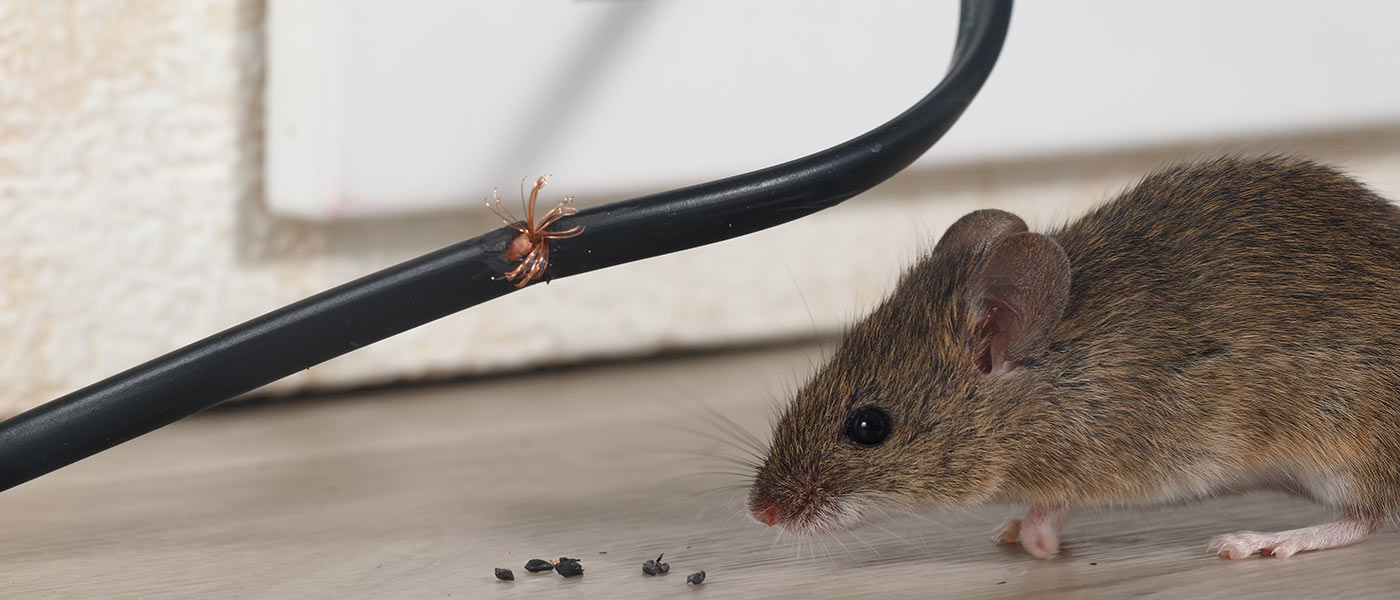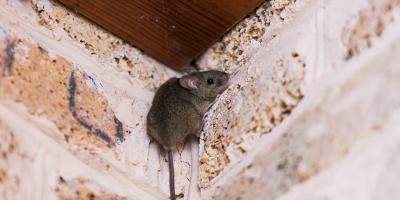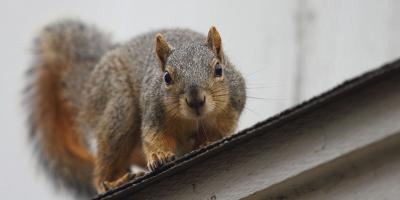Commonly Asked Rodent Questions at JP Pest Services Customer Service Center

How do you control rodents once indoors?
At JP Pest Services we use Integrated Rodent Management and, therefore, a combination of tactics to control rodents. Foremost, we all would prefer that mice and rats never get into our living spaces; however, they do and are quite comfortable cohabitating with or near people. Exclusion, the practice of sealing all entry points, requires everyone’s help and must be comprehensive to be successful. Before we can launch a ‘rodent elimination’ program we must stop or severely restrict their entry into your home. By conducting a thorough inspection of the home, our expertly trained Service Professionals will identify how rodents are getting inside and what other resources they are exploiting. Limiting rodent access to food, water, and shelter will greatly facilitate their control.
Eliminating and monitoring rodents involves two strategies: trapping and rodenticide use. Cleaning and resetting traps, without great assistance from customers, makes affordability of a trapping program difficult (due to many visits and associated labor costs). Therefore, after reducing resources and restricting obvious entry points, we rely more on rodenticides to monitor rodent feeding and control their populations. Preferentially, mice and rats gnaw on rodenticide bait block edges, thereby revealing numbers of individuals, and where they are most active. In this way, we can rapidly determine where problem areas, entry points, food, and nesting areas, etc. are located.
While no currently available method will ‘flush’ rodents out of wall and ceiling voids or other nest-hiding sites, mice and rats eventually will seek food elsewhere even when they have abundant food caches. When they do, our equipment placed and set by our skilled JP Service Professionals will be waiting!
What will stop rodents from dying in wall voids?
First let’s put all our minds to rest: Rats don’t like to live in spaces that people frequent, but they will search for resources when all is quiet. Rats are unlikely to invade wall or other cavities of single-family homes and nest there. Just like us, animals retreat to their nests or other secure areas when they feel sick. So, mice that have consumed rodenticide baits may die in walls or other voids where they nest.
Contrary to popular belief, nothing in the bait makes them thirsty or drives them to seek water. On the other hand, nothing in the bait makes them prefer to die in walls and other voids either. Likely, they will die in or near their nests. It is important to note that this scenario should only play out initially because rodent presence indoors will rapidly decline once structural exclusion work is complete and entry points have been closed off.
Tips to prevent rodents in your home:
All exterior doors should be tight-fitting, equipped with functional door sweeps including garage and bulkhead doors, leaving no gaps bigger than ¼ inch. The same criteria (less than ¼ inch gaps) hold for plumbing and electrical penetrations to the outside. Common house entry points for rodents include the A/C compressor line, gas or heating oil lines, electric meter unit, gaps at the roofline, foundation junction points, window wells, field stone foundations, dryer vents, and plumbing penetrations. When inspecting for these entry point deficiencies inspect high and low because mice can easily scale most construction materials to gain access to the highest points. Inspect from inside and outside because many times an inside inspection will reveal where daylight emits, and those deficiencies may be the rodent entry points. At minimum, gaps (¼ inch) will allow insects to enter and should be sealed.
Also, avoid unintentionally feeding the rodents! Bird seed by day is rodent food by night! Additionally, keep all (dry/non-refrigerated) foods (pet and human) in tightly sealed, rodent-proof containers. Make it tough for rodents to access resources and feed on unprotected food.
JP Service Professionals receive the very best training available within the industry taught by degreed in-house entomologists, board certified entomologists, and industry consultant experts known worldwide for their rodent research.
How to reduce dead rodent odors?
Few odors are worse than a dead mouse. JP’s Service Professionals work hard to find and eliminate such offenders on every service visit. For those that we can’t find, nature is on our side. Long before we can detect carcasses, nature’s cleanup crew is already on the scene. Carcass recycling insects will eliminate odors in as little as a day or two and go places only the tiniest mouse can access. The long-term solution, of course, is to prevent rodents from getting into these “hard to reach places” in the first place through exclusion.
JP Pest Services offers a comprehensive rodent control program that focuses on identifying and eliminating rodent entry points within our scope of expertise. This task is not an easy one and requires a high level of training and experience to understand where to look and how to properly block rodent access. Some structural deficiencies may be beyond our expertise, and we will point them out and recommend you seek professional carpentry advice to correct them.
Bottomline:
Rodent control is not a “one and done” situation. It requires constant vigilance and monitoring of all rodent activities. There is no silver bullet or magic pill, many integrated tactics are required to gain control over rodents.
Our highly trained Service Professionals have the expertise and experience to decipher the telltale signs rodents leave behind and apply decisive control strategies that provide outstanding results. Get the peace of mind you deserve by hiring a JP Pest Services Professional to manage your rodent concerns!



